#Original language (*) > translation
Text

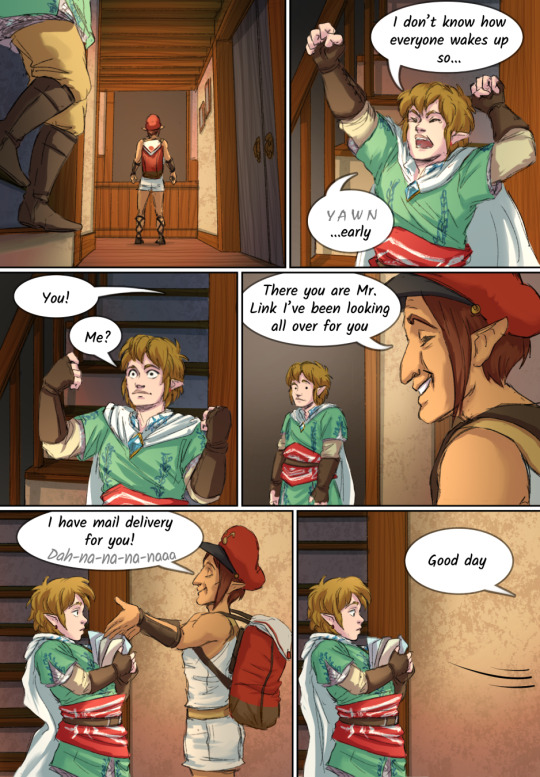
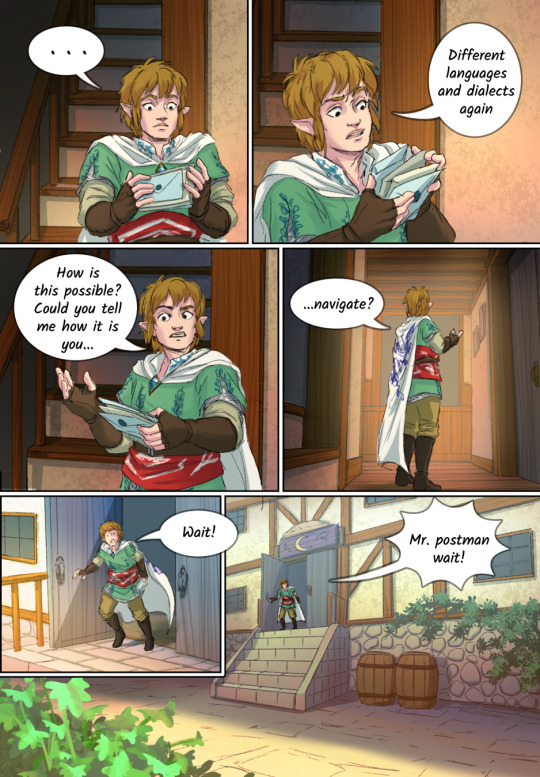
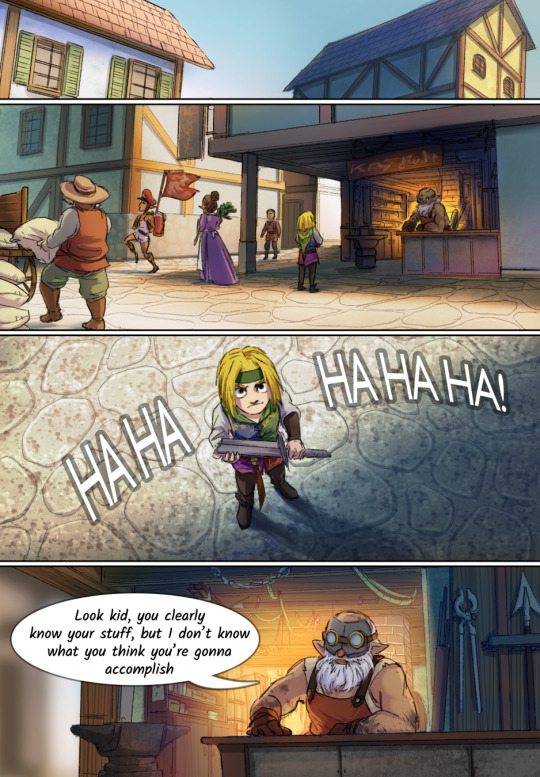

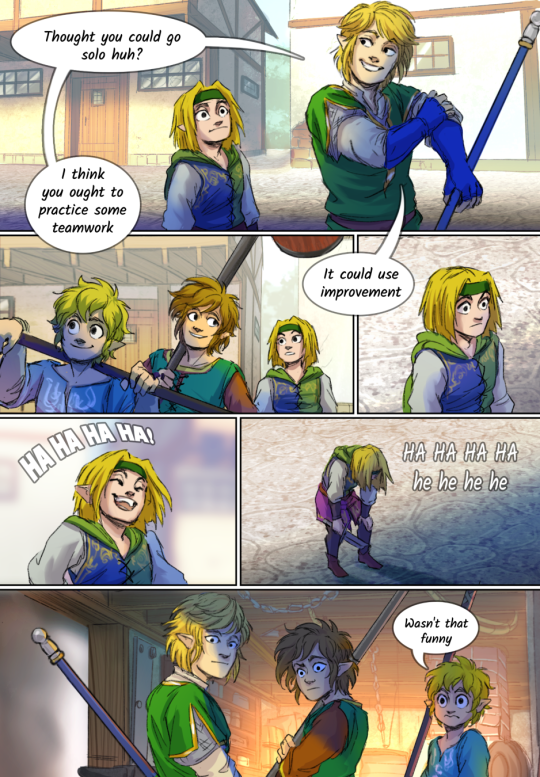
Dawn pt. 4
<<Previous Next>>
Archive/ About / Linktree
#linkeduniverse#creator content#The Hero of Warriors has#IMO one of the most beautiful looking Hylian languages. But unfortunately it has yet to be translated into a real language#You can see it in the background of the menu screens in HW#So I decided he could use Legend/Wild's as a stand-in Hylian (botw & albw) as it seems to be rather common (same goes for the hero of Hyrul#I figured Warriors is slightly multilingual what with his era contacting all other eras#And I gave him handwriting that looks a little more like his original language with heavy serif strokes. (his is 4th signature down)
7K notes
·
View notes
Text
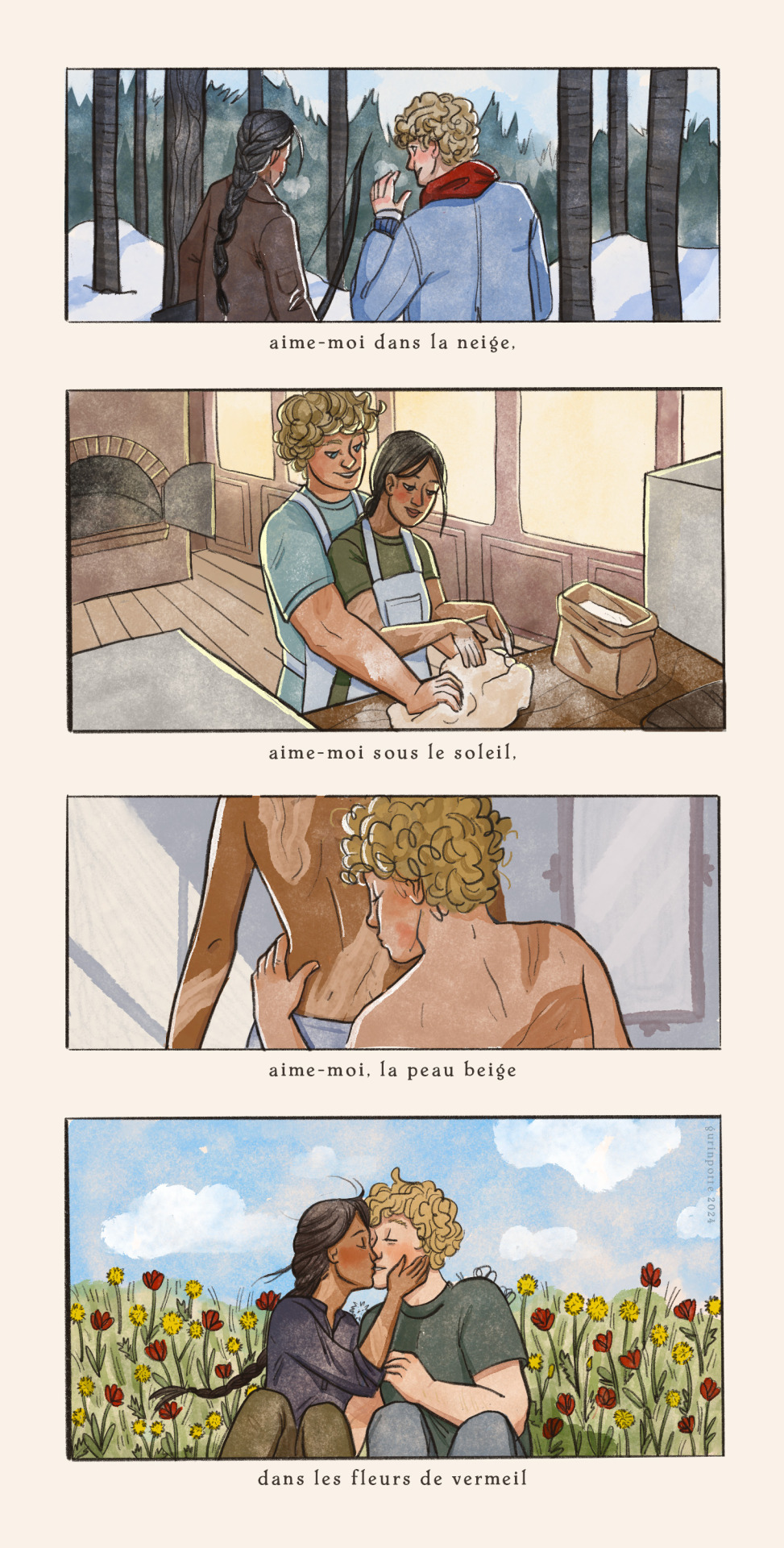
“
love me in the snow,
love me in the sun,
love me, the beige skin
among the flowers of red"
∾⋄∾⋄∾⋄∾⋄∾⋄∾⋄∾⋄∾⋄∾⋄∾⋄∾⋄∾⋄∾⋄∾⋄∾⋄∾⋄
Inspired in part by beloved Gravity, by @katnissmellarkkk and by Roi, by Videoclub! The song doesn't have the everlark vibes per se but the lyrics are so cute and very snapshot like. The fic is perfect, very natural paced and full of longing, 100% recommend!!! Please do zoom in for hi-res, gave my life and tears for this one 💖
#everlark#just wanted to do bits of their life post mj#not as angsty as it should be#i know#but this kids! they've been thru enough#also so funny that videoclub is literally a teenage couple#excuse my actual french and free translation#both these languages are not my original one#might find some brazilian song to everlark to next#thg#thg series#katniss everdeen#peeta mellark#peeniss#katniss and peeta#post mockingjay#gurin illustrates thg
1K notes
·
View notes
Text
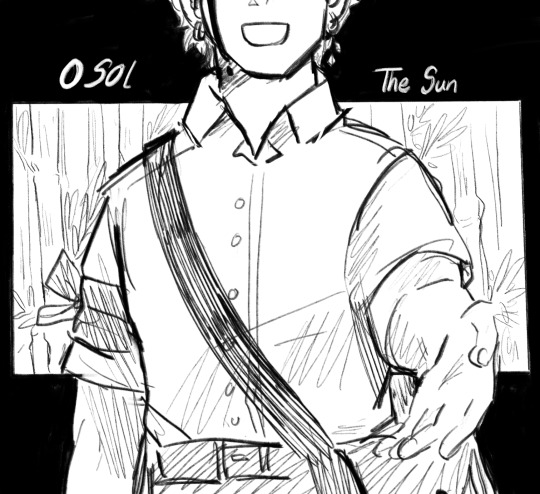
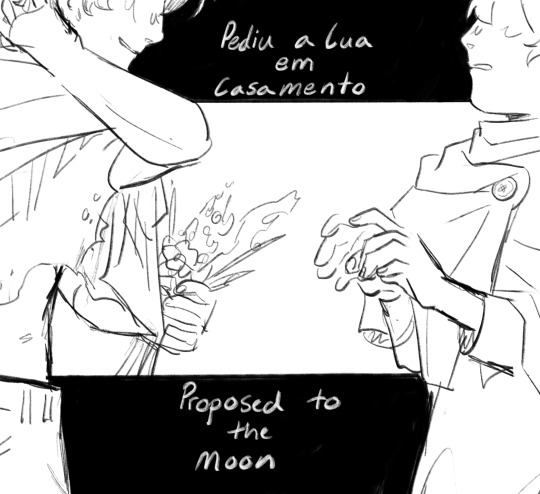
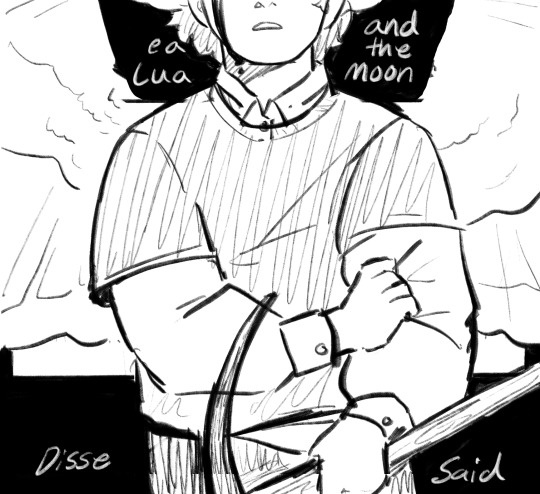
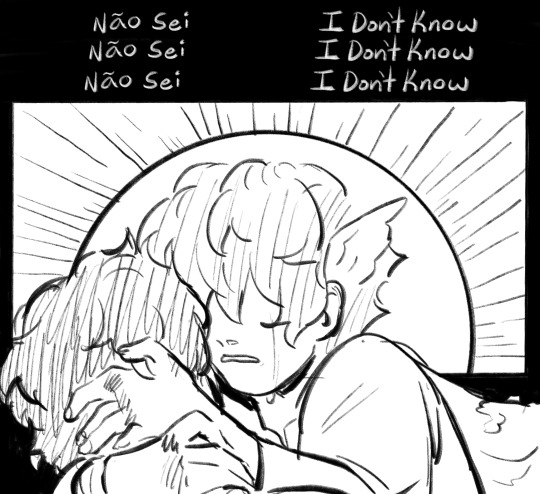
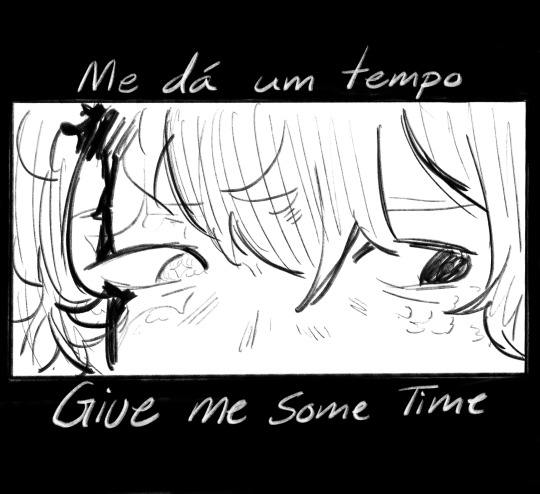
I've had O Sol e a Lua stuck in my head for a bit and idk, figured it could maybe work for desert duo
#if youre wondering why i didn't post this to the music and made an anamatic or whatever out of this#i have no idea how#ALSO#i dont speak the language the song is originally in#so if i happened to get the translation wrong i genuinely apologize#ive seen a few on the internet and dont know which one is the right one#third life#double life#traffic smp#desert duo#my art#once again if i got the translation wrong#sorry bout that
2K notes
·
View notes
Text
I love the fact that Atreus just instinctively knows how to speak dead and forgotten languages but the moment Kratos says one word in Greek he's just here like

#He can speak a language which is only used by a giant snake and translate words carved into an ancient mask of unknown origin#but he is bested by the word humid in greek#I love this kid#that's so funny#god of war#gow#god of war ragnarok#gowr#atreus
2K notes
·
View notes
Text
#i saw someone talking about how they had copies of the same book in multiple languages and i was like.... why tho#like i get collecting multiple language editions of a favorite of yours#but this was presented as specifically for reading in other languages#idk am i the odd one out here?#i will not read anything translated Into Japanese#the way i look at it is that i learn languages to get a deeper understanding of the author's original intent#but as of right now theres still a little bit of a language barrier#translation is already a type of barrier between you and the original work#so why would i want to be twice removed from what the author is saying#languages#langblr#studyblr#language learning#benkyou posting#polls#memes#studyinspo#polyglot#the only reason i can see myself reading a book translated into japanese is if i really want to read it but japanese is the only#available language i know#but even then#i always have so many books to read that it really wouldnt make a difference if i either a. read it or not#or b. waited for it to be translated into english#i do know that im weird about translations though
242 notes
·
View notes
Note
Do all of the knights have names in your au? And how did you decide on them?
hello there, thank you so much for the message! correct me if I misunderstand, but I think this is about a panel from my galacta knight vs meta knight comic:

where Galacta Knight uses the word Vaýtita. it's not a name, it's a... actually you know what, it's so much more embarrassing! it's a term of endearment/a relationship designator from my unnecessarily complex whole entire sci-fi language i built for them, lmao 💦
here's the note at the beginning of my personal dictionary as a quick crash course:

Ei Vaýtita in particular means "my gravity". it's akin to words like beloved, my heart, or soulmate- an irresistible force in one's own life. it's usually used romantically, but it doesn't have to be. Galacta Knight says it here to be cruel, though i do think he means it quite wholly
when I go in for making languages, especially sci-fi or high-fantasy ones, i like to consider the alien culture that the language is formed in. for these guys, everything was star and space coded; they had no reason to care about "hearts" or "souls". they considered themselves star-like, and so gravity as a term was most important; it's the only thing that can really move them.
praise is about being bright or shiny or having strong gravitational pull; and insults, accordingly, tend to revolve around being dim/lightless or stuck in orbit around someone greater
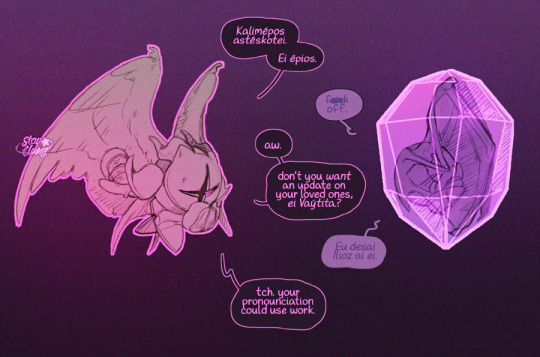
(translation under the cut because this is already getting long, sorry... i love to talk about this... thank you for asking 😭💝)
phrase // literal translation (from starspeak) // english localisation or meaning
kalimépos // welcome first light // good morning
astéskotei // dim star // derogatory but not blindingly so; you could use it pityingly or fondly in a pinch
ei épios // me see // wake up
ei Vaýtita // my gravity // term of endearment and a relationship designator used within a star-system, usually for equal partners
eu desai Ílioz ai ei // you (are not) the Sun of me // this is basically just a rejection from Meta Knight. the Sun serves an important role in star-systems, and he's simply telling Galacta Knight to shove it. he doesn't say it very well, but he refuses to say Ílioz-ei and so turns to a slightly clunky workaround.
#galacta knight#meta knight#my art#starspeak#awtdy au#asks#i do not speak any greek (modern or ancient) or arabic and rely on google translate entirely#originally designed this language entirely for self-indulgent personal use so it's got its flaws and is ever-growing and changing#i formally apologise to any actual speakers to whom this probably looks very stupid as it is truly just words slammed around in the blender#if they mean anything in OTHER languages also i apologise; i try to make sure that they don't translate to anything but it's tricky!#was just obsessed with the idea of utilising existing cosmic designation conventions for their dumb ancient star language#also to the person who referred to this on my main comic as meta knight being ring-popped thank you for my life i loved that#my headcanons and worldbuilding
209 notes
·
View notes
Text
pronouncing the necron 'sz': personal rating list*

broke: /s/ only ('seras')
woke: /z/ only ('zeras')
provoke: /s/ and /z/ pronounced separately ('s-ze-ras')
bespoke: /ʂ/ or /ʃ/ ('scheras')
invoke: tensed fricative /s͈/ ('sseras')
misspoke: /s/ but evil ('ßeras')
(* Further notes in tags.)
#warhammer 40k#wh40k#necrons#illuminor szeras#necron#shitpost#german speakers i am so sorry you had to read that with your eyes 😂 i also speak german i do know eszetts can't start words#originally this was just for fun but it seems there are quite a lot of ways wh40k fans pronounce this#native english speaking fans usually seem to stick to 's'#whereas in languages that actually use this digraph it would be s/ʂ/ʃ#but in korean translations 'sz' defaults to 'z' so it's definitely 'zeras (제라스)' and 'zarekh (자렉)'#and sometimes the 's' and 'z' are both present and pronounced like in japanese ('s-za-rekh';スザーレク)#(i personally use ʃ because it seems the logical compromise)#in lore terms i think all or most of those pronunciations were used among the necrontyr and there is not one 'canon' version#variety is the spice of life it's fine they're all good. well maybe not the last one but still 😂#according to TDK the necrontyr didn't have a united language until szarekh came along so they must've had different dialects#i reckon that's why the silent king made his universal language. so people could pronounce his name how HE specifically wanted it#it's all becoming so clear now!!!! 😬
85 notes
·
View notes
Text
My number one classics ick is when a scholar will just insert untranslated passages of Greek and Latin into their paper. good job on the artificial inaccessibility you guys, glad you were able to gatekeep the field so none of those dirty peasants may learn stuff. its just for us cool guys who speak Greek or Latin
#This is my speaking as a classical archaeologist who can read very rudimentary Latin and pretty much no Greek#I just never got offered the classes and they weren't a requirement#I'd love if I could and I've been trying to learn latin on my own for a while but self teaching a language isn't exactly easy#I know just enough that if I find a translation that feels off I can get a dictionary and the original and see how it might be phrased#I do need a second translation too to help me find my way#classics#ancient history#tagamemnon#ancient rome#ancient greece#latin#latin literature#greek#greek literature#academics#ick
152 notes
·
View notes
Text
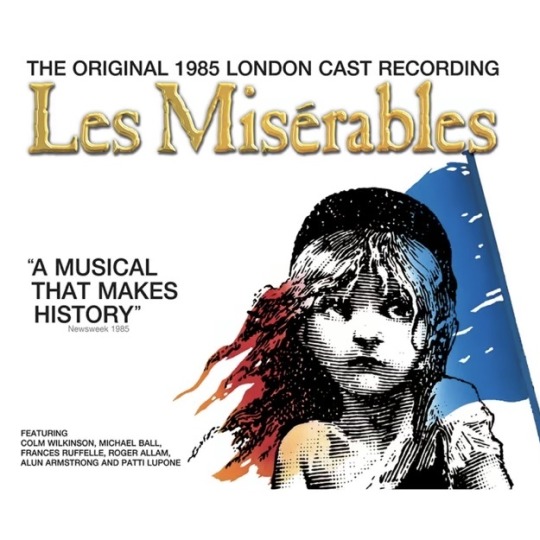
#musical theater#do you know this musical#poll#les misérables#claude michel schönberg#Herbert kretzmer#Alain boublil#jean marc natel#language: english#language: french#(it’s originally in french but the english translation is incredibly well known)
148 notes
·
View notes
Text
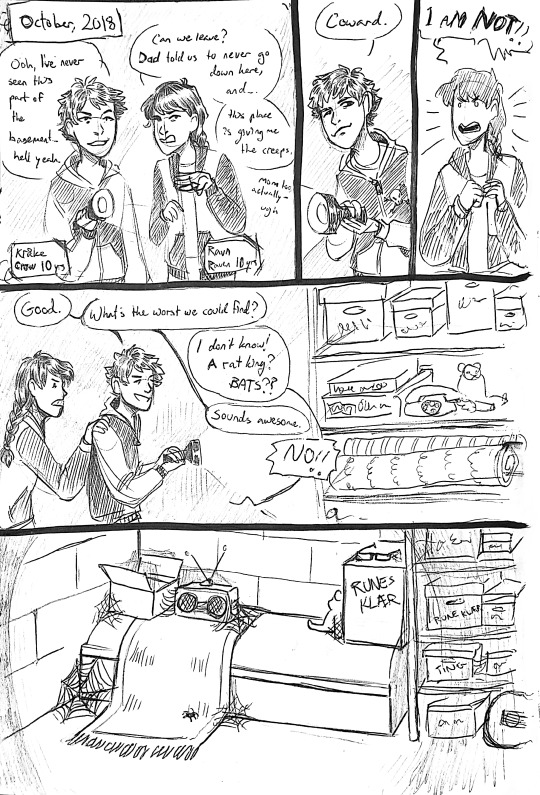
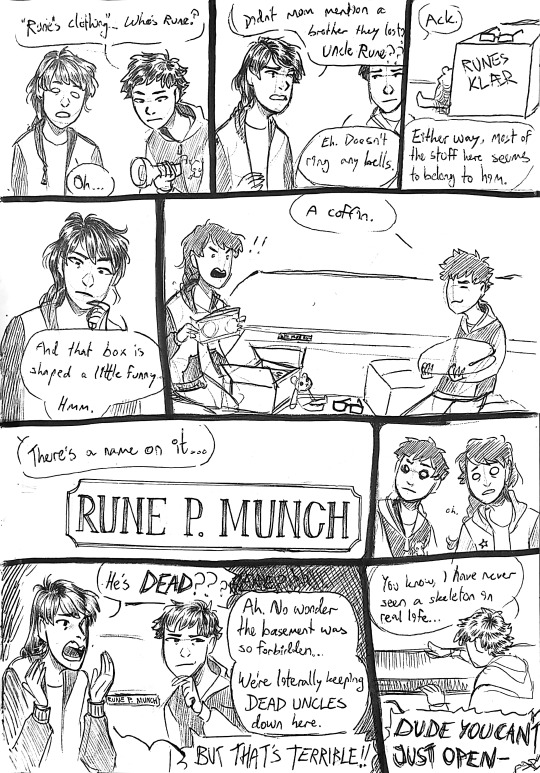

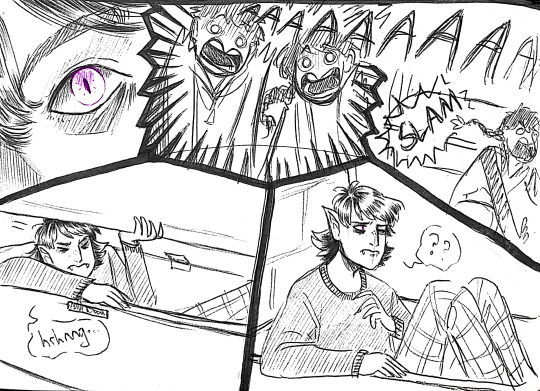
well what family doesn't keep a secret vampire family member hidden deep in in the basement /s
EDIT: Rest of the comic is now under the cut!
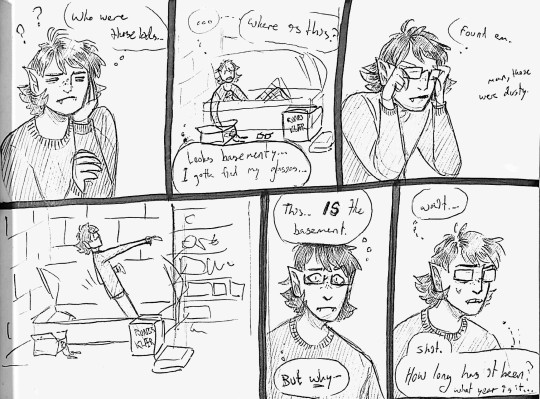
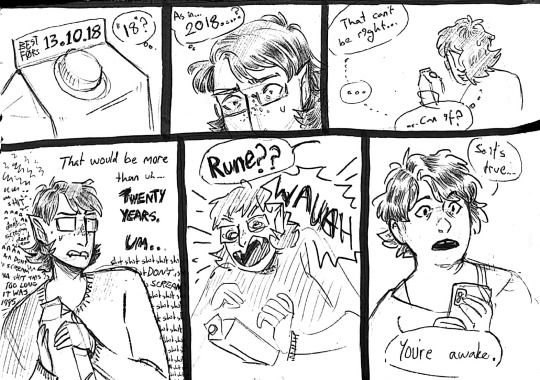

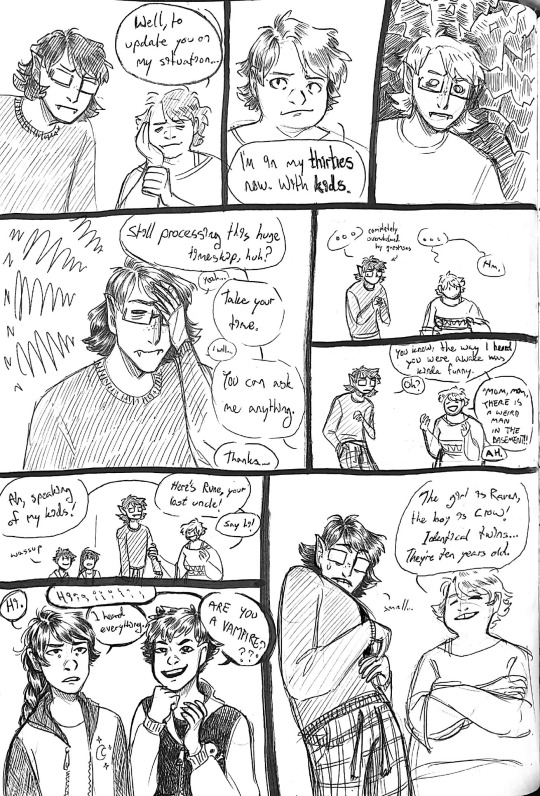
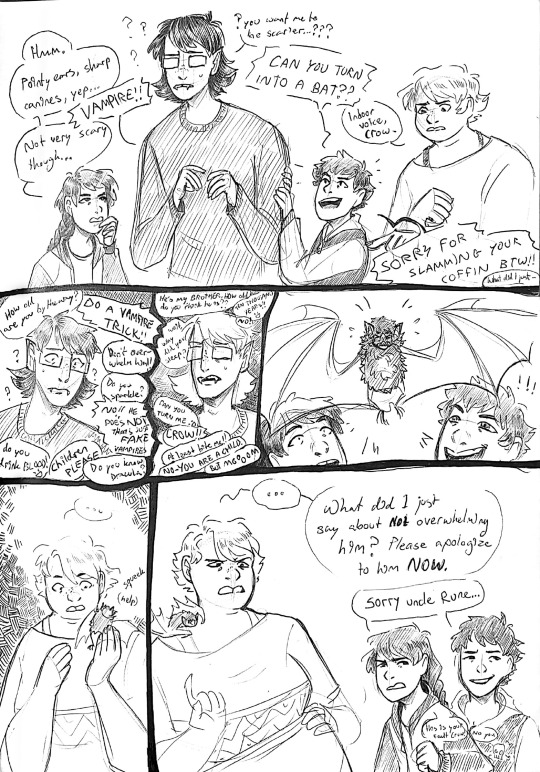
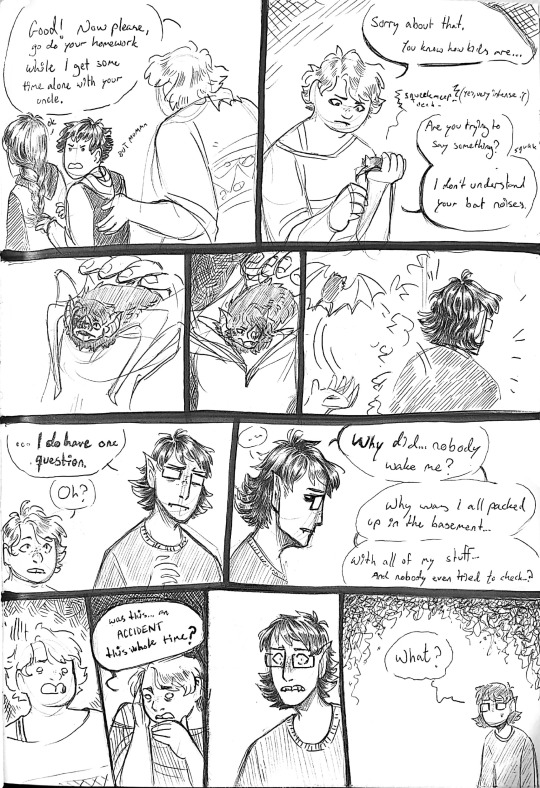
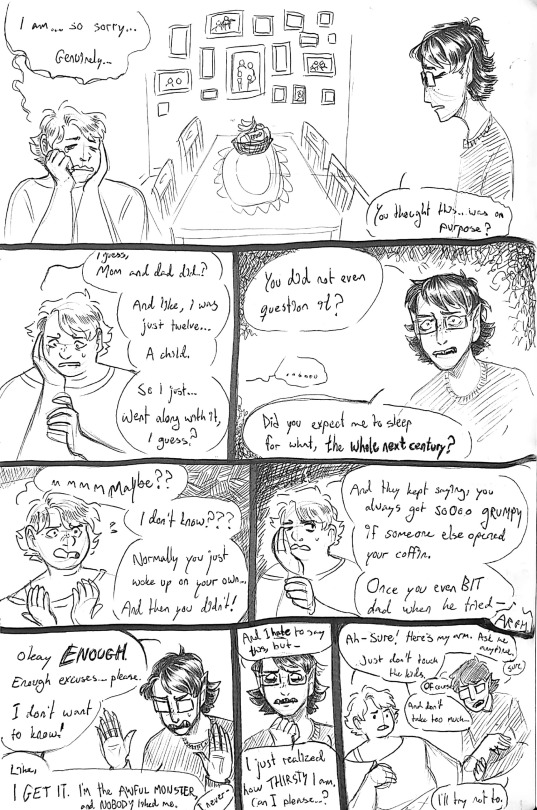
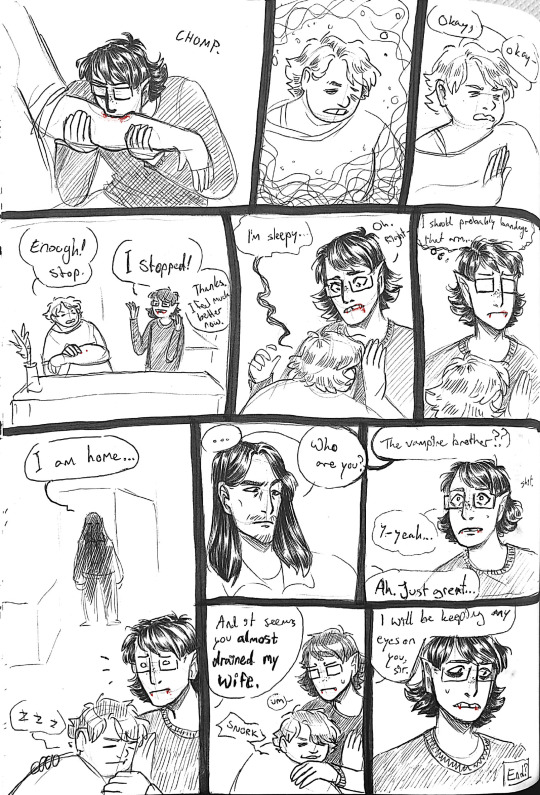
----------
BONUS:

#first fullpage comic in my new sketchbook woooo 🎉#poor rune. accidentally hibernated for 20 years and he didn't even do it on purpose.#you can tell by the fact that he went to nap in his freakin pajamas#as you do when you go to sleep#but then this time he just. didn't wake up. and his family assumed it was on purpose. so they just let him???#oops?????#yes munch is a surname that's been used in norway - especially in towns that had historically had contact with german merchants. fun fact#so while his dad was originally literally a windenburg townie from the sims 4... it still works#oh yeah the way i am handling language in this comic. do keep in mind it is set in norway and the canon language is actually norwegian#so while any dialog usually gets masked with english so you may actually understand wtf people are saying#text on objects do not get translated. because they're a part of the world and stuff. it's the way people see them. that makes sense right#(don't even get me started on my complex relationship with written norwegian. long story short: it is a pain)#EDIT: now with the full comic under the readmore
108 notes
·
View notes
Note
About your response re: Gongyi Xiao's name, if the given name is one syllable, how would he be referred casually? I've only just started learning more about how chinese names work, and from what I've been told names should preferably have two syllables. I've seen additives such as A- and -er, but I don't exactly know how they work and don't want to make assumptions.
This obviously doesn't relate to canon facts like this blog intended, so apologies if the question is unwelcome! Hope your day is lovely either way 💕💕
Tbh I'm open to answering as many questions as I can, even if it's not this blog's main intention-- even if I can't answer or don't answer correctly, at least then it's out there before a bunch of eyes that can peer-review!
Whether a given name in Chinese has one or two characters, that can depend a lot on generation. For example, I believe for a long time it was two-character names that were customary, then more recently one-character names, and the current generation has gone back to favoring two-character names again. Sometimes, a given name will have three characters, maybe even four, but I have only heard of this and haven't seen it so it's very uncommon.
Either way, you're hardly ever going to call someone by a single-character name without a modifier. Usually names aren't used without modifiers at all, but it's especially so for single-character names. To call someone by a single-character name with no modifier is not unheard of in literature, but it is very intimate, and also very uncommon-- so I wouldn't suggest using it that way.
Anyway, for Gongyi Xiao in particular, one could very, very informally call him 萧儿Xiao'er/Xiao'r,or 阿萧 A-Xiao. However, this is very familiar and would only be used by people older than him, especially when he is young, or people who are very, very close to him like parents or older siblings and other relatives, or by a romantic partner-- not casually between friends. Both of these are intimate and affectionate, with a "cutesy" sort of feeling, though to my own interpretation Xiao'er is slightly more so than A-Xiao.
For his peers, 公议师兄 Gongyi-shixiong would be standard, even for those peers from other sects as cultivators of the same generation call one another Shixiongdi/Shijiemei even when they are not from the same sect in SV.
As for general close friends, Calling him 公议兄 Gongyi-xiong would be appropriate (with "xiong" here as roughly equivalent of "bro") or perhaps 萧哥 Xiao-ge as something even less formal but not as intimate as Xiao'er/A-Xiao.
So, someone of the same generation could call him inorder of formal to least formal, Gongyi-shixiong > Gongyi-xiong > Xiao-ge, and a partner of his could say A-Xiao or Xiao'er.
#answered#gongyi xiao#svsss#language#translation#cultural tidbits#this works the same way for other single-character given names#such as Shen Yuan#and i do know there are regional differences in diminutive#i'm originally from central-northern china#in addition to my long time without speaking fluently#so others from other regions & with better fluency might have different thoughts on how to call him#definitely feel free to add on#anyway i do like questions like these because it lets me share things i know with others#while also helping me with my own learning through peer-review :>
83 notes
·
View notes
Note
Okay I think there's a new worst English translated song title. Forget Gekokujou becoming Retainer Supplanting His Lord or Theme of Niccori Survey Team
Hakoniwa no Coral is just "Coral" apparently
would it have hurt them to use coral miniaturescape, or miniature garden's coral, or coral in the miniature garden? or anything including the hakoniwa part?
#/lh#asks#tbh theme of niccori survey team isn't that bad since it's a direct translation. smile^^survey team is nicer but it's not like. bad#coral on its own is just kinda boring though if you are aware of the fact the title is longer in the original language#mod talks
73 notes
·
View notes
Text
Top ten Danish sayings according to me
My ten favourite Danish sayings/turns of phrase (in no particular order), just because I love language. I say all of these regularly. Enjoy!
goddag mand, økseskaft – hello man, axe handle
This one is used when someone answers a question you asked in a nonsensical way or just in general when someone has said something foolish or nonsensical. you can read about the origin in Danish here.
det kan ske, det kniver med gaflerne – it may spoon it knives with the forks / it happens that the forks are in short supply
Not used in any specific situation other than when someone says det kan ske 'it happens', because ske 'spoon' and ske 'happen' just so happen to be homonyms. Additionally kniv 'knife' and knibe 'be in short supply' are almost homophonous, especially if kniv was a verb.
fra folk og fulde børn skal man høre sandheden – from people and drunk children you will hear the truth
This is not actually the saying, it's supposed to be børn og fulde folk, but it's more fun like this. Originally, this refers to the fact that neither children, nor the drunk tend to think too hard before speaking, thus they tend to tell the truth.
det haster ikke mere end det jager – it's no more urgent than urgency
Excuse my creative liberties here, as both haste and jage mean 'be urgent'. It is more or less synonymous with "take it easy, no rush" – a sort of Danish hakuna matata.
To me, as someone from Western Jutland, jager should always be pronounced jawer ['ja.wʌ] in this saying.
stå med håret i postkassen – to have gotten one's hair stuck inside the mailbox
A metaphor for when you are in some sort of trouble or problematic situation where you feel like you have no power to change your unlucky situation. Often used when you are disappointed as a result of being cheated somehow.
det kan noget – it does something
My best approximation of an English version is "it's got a certain je ne sais quois", because that's literally what it means. It does something for you, specifically, but you're not entirely sure what exactly it is that it does – but it works!
man kan æggehvide, hvad man æggeskal – one egg whites what one eggshells | one cannot know what one should not do
Another pun, I am sorry for being your literal dad, I guess. Basically æggehvide 'egg white' sounds like ikke vide 'not know' and æggeskal 'eggshell' sounds like ikke skal 'should not'
ikke nå nogen/noget til sokkeholderne – not being able to reach someone/something's garters
When someone/-thing is not nearly as good as someone/-thing else. You know, it barely reaches above their knee!
hvor der handles, der spildes – where stuff gets done, stuff gets lost
Exactly what it says on the tin. Its English cousin is "you can't make an omelet without breaking a few eggs".
fanden og hans pumpestok – the Devil and his pump stick
Yes, this is as vulgar as it sounds. This one is used last in lists of things that are excessive, e.g, vi skulle støvsuge, slå græs, fjerne spindelvæv, dampe gulvtæppet og Fanden og hans pumpestok 'we had to vacuum, mow the lawn, remove cobwebs, steam the carpet and God knows what else'.
Honourable mention for this one that I learnt while looking stuff up in the dictionary:

[ID: A screenshot from Danish online dictionary ordnet.dk of the entry for the saying 'anbringe bagdelen i klaskehøjde'. It explains the saying and additionally recommends the entries for smæk and øretævernes holdeplads. End ID]
Translation:
to place one's backside (ass, bum) in smacking height.
TRANSFERRED MEANING cause oneself to end up in a situation where one might very easily be exposed to criticism and negative reactions from one's surroundings – e.g., by speaking openly about a certain case USE informal
SEE ALSO spanking | the whoopings' parking space
#literally googled 'euphemisms for getting beat up' to find a translation of øretæver that i liked#the literal translation is ear beatings#but its about ~the vibes~ as is the trend for translations#anyway heres a post!!!#danish#danish language#langblr#Danish langblr#language#idioms#sayings#vocabulary#original
107 notes
·
View notes
Text
Fun fact: in Anishinaabemowin, the term for a cat purring is "nagamo gaazhagehns" / "nagamo biizhehns" / " nagamo boozhehns" (different dialects have varying words/spellings for a house cat)
But the main thing is that "nagamo" is the verb for "he/she/that one sings"
Cat purring in Anishinaabemowin is essentially called "cat singing"
#anishinaabemowin#ojibwemowin#ojibwe#anishinaabe#indigenous languages#the words for cat also are fun#gaazhagehns comes from the verb 'gaazhage' which means 'he/she/that one eats greedily or is gluttonous#so gaazhagehns translates roughly to 'little greedy eating one'#and boozhehns/biizhehns are the diminutive versions of the the word for a lynx (bizhiw) because#--that was the example of a feline that existed in our language/world when domestic cats were introduced to us#so we just called them 'tiny/baby lynxes'#i love anishinaabemowins maliability and ability to just create words to address new things#nish tag#linguistics#original posts#indigenous tag
226 notes
·
View notes
Text
Sweet reminder from my thesis.
Sophia is not only LoP's version of the Blue fairy. She also shares many traits with her. The blue hair is one, especially since it is described as 'dark blue' in the book and what hair color does she have at the end of 'Rise of P'? Dark blue. Also the hairstyle and length of the hair is really similar at this point. Another thing is that her dress seems to be a more elegant version of the Blue Fairy's dress/gown. And... I know it is a reference to a famous statue... The way she holds P in the 'Rise of P'-Ending, is similar to when the blue Fairy carried Pinocchio to her bed.

#lies of p#lies of p sophia#sophia monad#me rambling again#btw#remember i read a german translation which is suppose to be close to the original but you know#languages are different
35 notes
·
View notes
Text
One thing about being in translation is that you end up noticing how weird some things would sound if they were translated in a literal way into English.
Today the lady at the cafeteria asked me "Multibanco, princesa?" Which is an absolute hell to translate even though it contains just two words. What she was asking me was if I wanted to pay using the portable ATM machine. Then she addressed me as "princesa" which literally translates to princess.
And that's totally normal here but from what I understand of English the only situations you'd ever refer to an adult like me as princess would be if
You're flirting
You're joking or mocking the person you're addressing. It's a way of calling someone spoiled.
However in this case it meant that the lady saw me as someone younger than her and she wanted to be extra nice so instead of going to the more formal "menina" (miss) she went with a nickname that would denote some endearment. I'd say the closest thing in English would be the term "dear".
#I think there's some cute nicknames in various cultures that end up losing something when translated and that's always sad#another example is my parents would occasionally call me “papoilinha” which is a cute way of saying poppy (the flower)#which is just a very cute nickname#gle original#languages#portuguese#european portuguese#english
200 notes
·
View notes